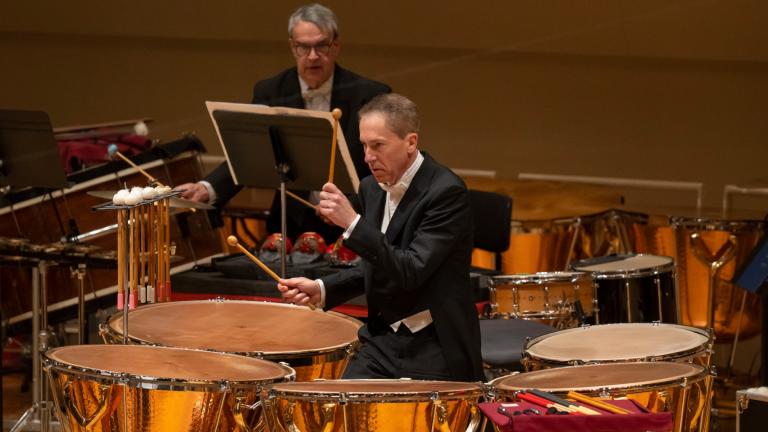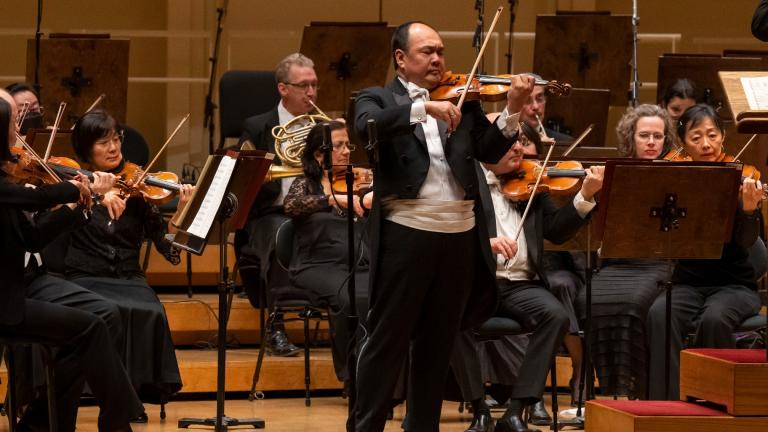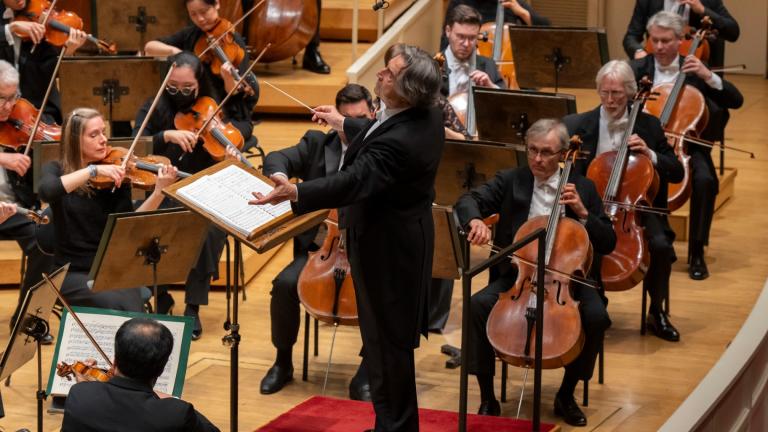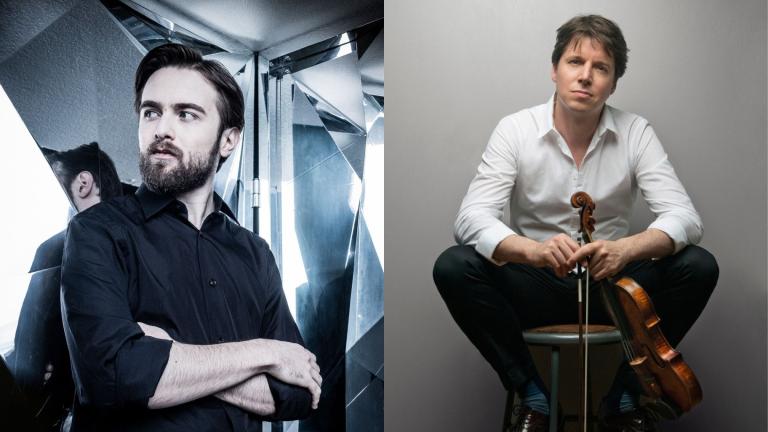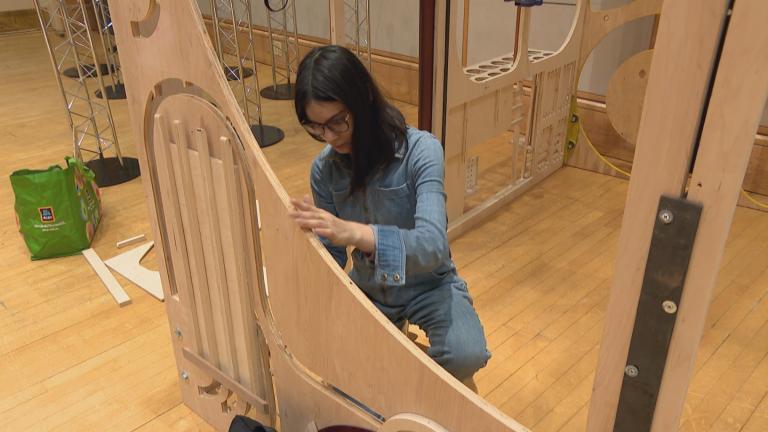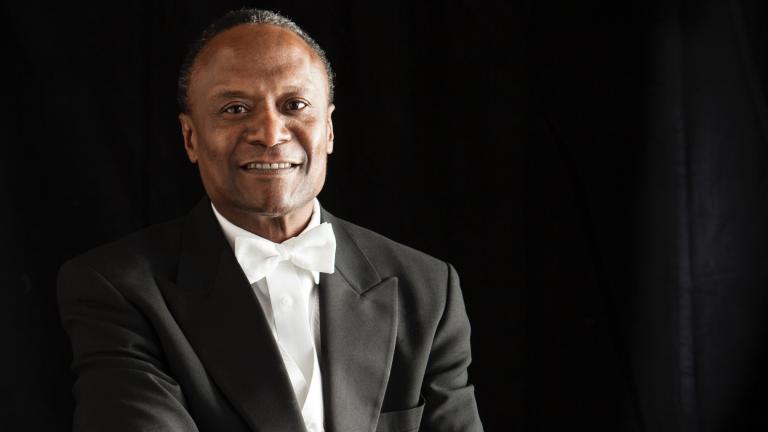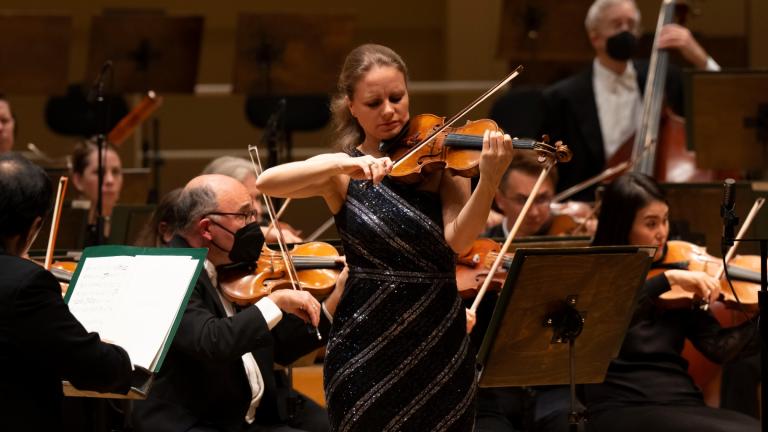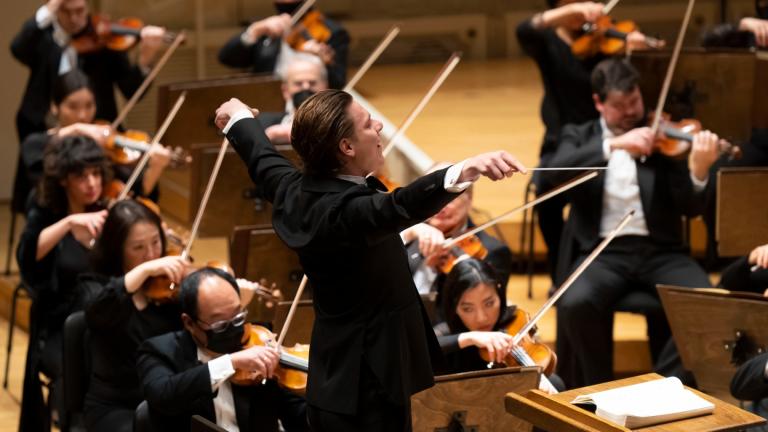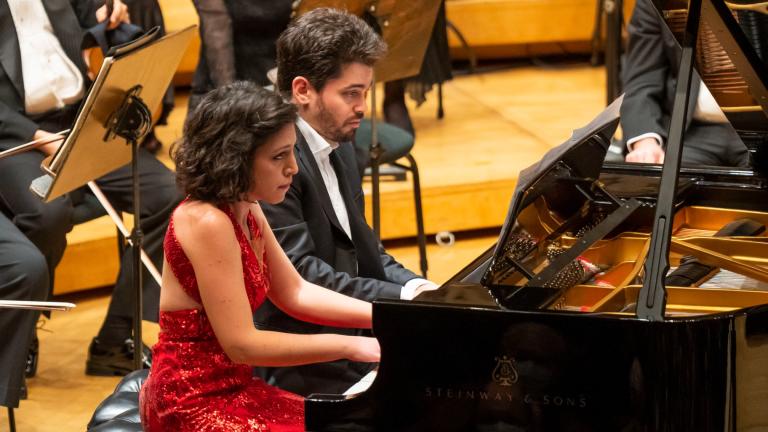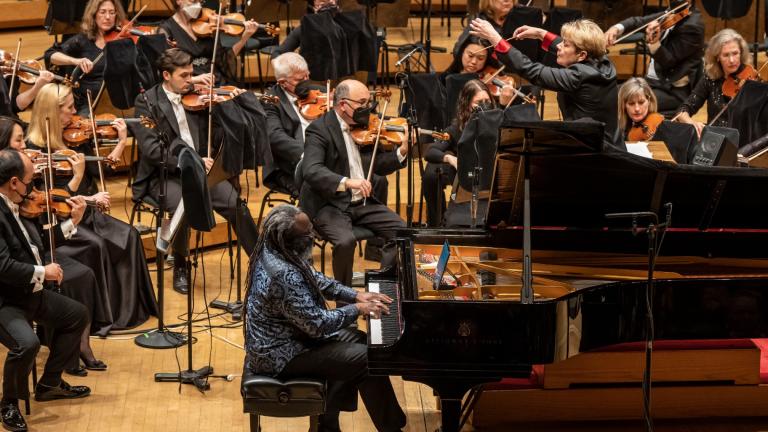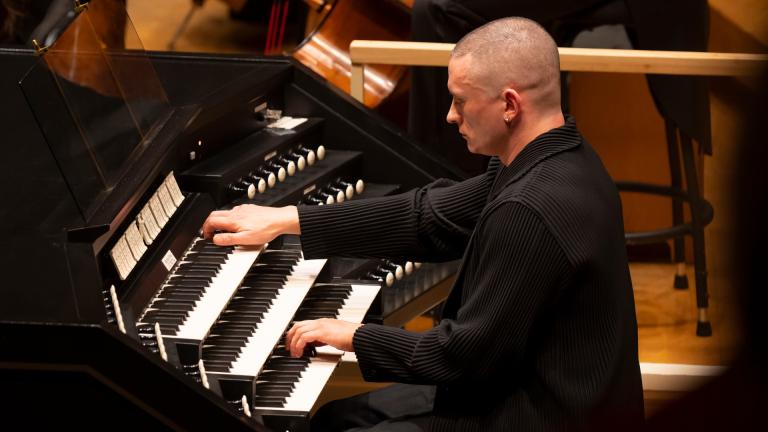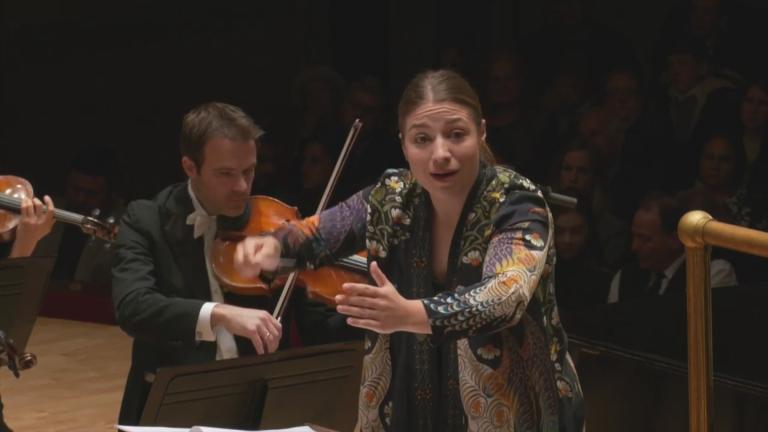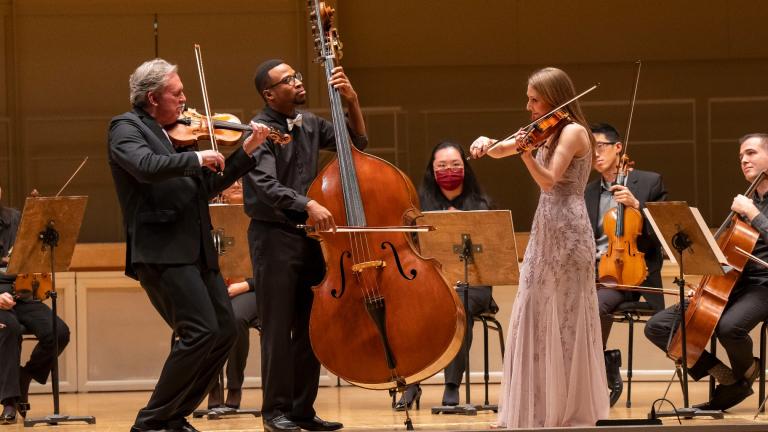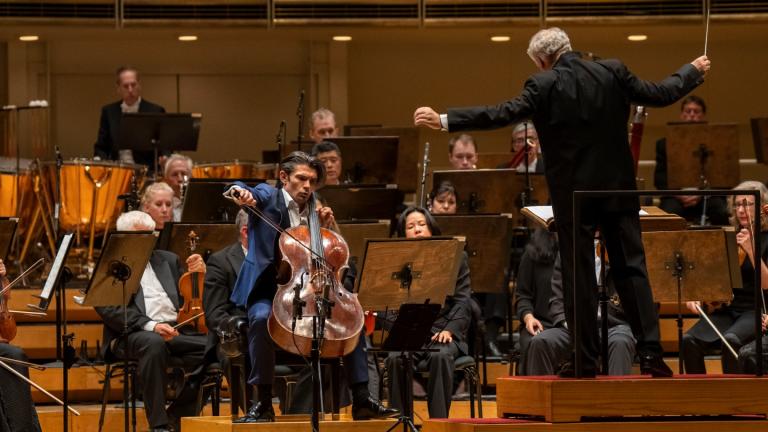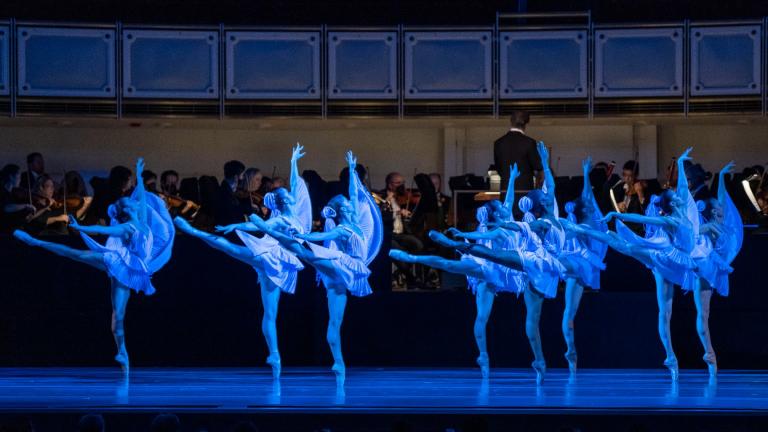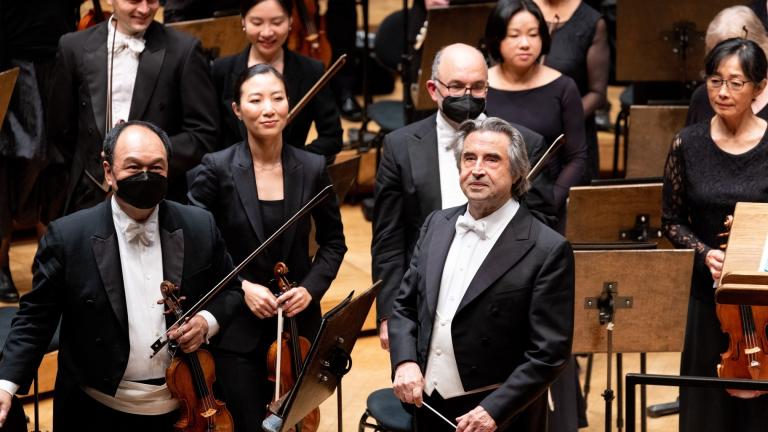A recent Chicago Symphony Orchestra program juxtaposed works by three masterful yet radically different composers of classical music: Wolfgang Mozart, William Kraft and Ottorino Respighi.
Chicago Symphony Orchestra
The latest program by the Chicago Symphony Orchestra honors Robert Chen, the orchestra’s invaluable concertmaster and masterful violinist. It also features a glimpse of a rarely revived opera.
Something magical happens when Maestro Riccardo Muti arrives on the podium at Orchestra Hall to lead the invariably superb musicians of the Chicago Symphony Orchestra.
Violinist Joshua Bell and pianist Daniil Trifonov dazzled an Orchestra Hall audience Wednesday night, writes WTTW News theater critic Hedy Weiss. The musicians, in top form, even treated the enthusiastic crowd to two encores.
Artist Rachel Steele mixes sounds she recorded live on public transit and out in neighborhoods with musical instruments reflective of the city’s different cultures. Her show, "Soundpost: Remixing Transit," is on display at the Chicago Symphony Orchestra this Thursday.
A Chicago Symphony Orchestra concert featuring works from Samuel Coleridge-Taylor, Aaron Copland and Antonin Dvorak is well worth seeking out.
At a recent concert, the Chicago Symphony Orchestra played Schumann’s “Violin Concerto in D Minor” and Tchaikovsky’s fiercely dramatic “Manfred Symphony.” The beauty and dramatic energy of both works were wholly captivating, critic Hedy Weiss writes.
The Chicago Symphony Orchestra was back on the stage at Orchestra Hall on Thursday. Klaus Mäkelä, the wonderfully graceful yet powerfully dynamic 27-year-old Finnish conductor, was on the podium to lead a stunning program.
It was an evening to remember at Orchestra Hall this Thursday with sublime and exceedingly fresh performances of works by two Russian musical geniuses: Sergei Prokofiev and Sergei Rachmaninov.
Female composers of centuries past might well have been smiling from afar Friday evening as the Chicago Symphony Orchestra, led by conductor Marin Alsop, performed a program of three works by immensely gifted contemporary female composers.
Something intriguing happens when an organ is added to the usual assemblage of symphony orchestra instruments. It’s almost as if an opera singer with a notably distinctive voice has been added to the usual “cast.”
Dalia Stasevska has loved music since she was a child. She is carrying on that passion with three Chicago Symphony Orchestra performances.
The exhilarating program featured five works by two composers — bassist Xavier Foley and violinist Mark O’Connor. All were superbly performed by various combinations of the composers, plus musicians drawn from the Chicago Symphony Orchestra, and guest violinist Maggie O’Connor.
Chicago Symphony Orchestra Concert Captured Aspects of Ukraine War (and Far More) in Remarkable Ways
Of course the performance of the concert’s three works, led with great elan and specificity by guest conductor Manfred Honeck, music director of the Pittsburgh Symphony, was superb. It was carried off with the kind of brilliance that only the musicians of the CSO can do.
It was an evening of sheer, unadulterated delight as the Chicago Symphony Orchestra joined forces with the Joffrey Ballet on Thursday for a pair of world premieres.
A symphonic poem of exceptional beauty by Cesar Franck. A thrilling, grand-scale performance of a masterwork by Modest Mussorgsky. And a breathtaking rendering of a Mozart piano concerto featuring a young, award-winning pianist.

